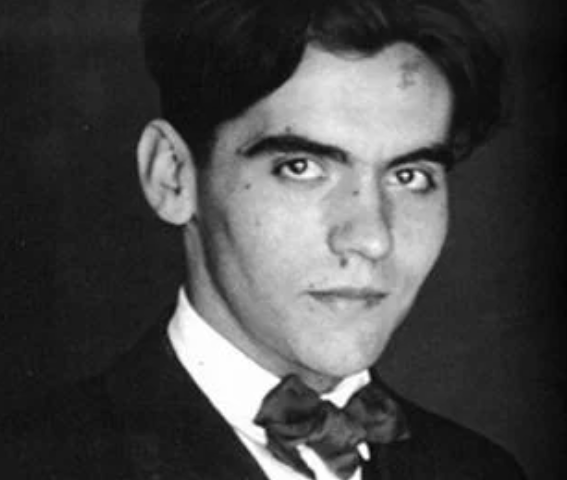This is an excerpt from Christian McEwen’s book In Praise of Listening, available from Bauhan Publishing beginning October 10, 2023.
I would read the paper while listening to the radio, but I wouldn’t check my email while updating my status while checking the news sites while talking on the phone.
—Rebecca Solnit
In the summer of 2015, Oliver Sacks wrote a short essay called “The Machine Stops,” which later appeared in The New Yorker. Sacks was a writer and neurologist best known for Awakenings and The Man Who Mistook His Wife for a Hat, as well as a lively and surprising memoir, On the Move. He was, above all, an enthusiast with a brilliant, original, astonishingly well-stocked mind. But what he saw as he left his apartment and moved out into the New York City streets had begun to trouble him. “People peering into little boxes or holding them in front of their faces, walking blithely in the path of moving traffic, totally out of touch with their surroundings . . . young parents staring at their cell phones and ignoring their own babies as they walk or wheel them along . . .”
At 21 years old, I traveled round the States on a Greyhound bus, enjoying many lively conversations along the way. On that same bus now, passengers barely raise their eyes from their tiny screens. The willingness to be open to a casual encounter, to trade impressions with a stranger, has almost completely disappeared. More subtle forms of listening are also under siege, from private woolgathering or rumination to communing with the past or the beloved dead to the many pleasures that reside in silence.
In traditional cultures, people were in constant communication with the surrounding world, if only as a matter of survival. But for most of us nowadays, this is no longer true. “The immediate present is undermined, perforated by a sense of elsewhere,” writes Sven Birkerts in Changing the Subject: Art and Attention in the Internet Age. Always drawn towards the latest piece of news, the latest bleep, our attention is splintered, fragmented, broken up. The writer Jia Tollentino is a case in point. She spends 90 minutes a day texting on her phone, as well as an hour reading, another hour responding to email, and a third hour on social media. “I carry my phone around [with] me as if it were an oxygen mask,” she writes in The New Yorker. “I stare at it while I make breakfast and take out the recycling, ruining what I prize most about working from home—the sense of control, the relative peace.”

In an interview with Krista Tippet, Joy Harjo spoke of trying to protect her own poetic focus. She was working at her desk when she heard a “Ding!” from her computer and realized she’d responded like one of Pavlov’s dogs. It shocked her, she said. “That’s not what I wanted to do. I wanted to stay on my track of listening.” It made her wonder why she was reacting in that way. But of course she knew the reason all too well. “Somebody is hungry for money, so if they keep you there with these sounds . . . then they will have your attention, and your attention means money, for them.”
In a world where “the airwaves . . . all the airwaves—are increasingly choked with noise” (Birkerts), that battle for our attention has now reached a crescendo. Harjo and Birkerts are not the only ones trying to sound a warning. Over the last decade, the number of thoughtful “escape manuals” have continued to proliferate. Early classics included Nicholas Carr’s The Shallows: What the Internet Is Doing to Our Brains and William Powers’s Hamlet’s Blackberry: Building a Good Life in the Digital Age, followed more recently by Cal Newport’s Digital Minimalism: Choosing a Focused Life in a Noisy World; Jenny Odell’s How to Do Nothing: Resisting the Attention Economy; Catherine Price’s How to Break Up with Your Phone: The 30-Day Plan to Take Back Your Life; and Johann Hari’s Stolen Focus: Why You Can’t Pay Attention—and How to Think Deeply Again.
The willingness to be open to a casual encounter, to trade impressions with a stranger, has almost completely disappeared.
In How to Break Up with Your Phone, Price states the issue with heartbreaking clarity. “Our attention is the most valuable thing we have,” she says. “We experience only what we pay attention to. We remember only what we pay attention to. When we decide what to pay attention to in the moment, we are making a broader decision about how we want to spend our lives.”
Twenty years ago, in one of the last summers of the old century, my partner and I were on a boat in Maine. It was late in the afternoon, the sun striking low across the water. We sat back, happy and relaxed, watching the gulls. Then one of the other passengers reached for her cell phone and began to talk. For the next 15 minutes we endured what has accurately been termed a “halversation,” as she described her exploits to some distant friend. Her hopes and plans and prospects filled the air; her current impressions overrode our own. We could no longer gaze out dreamily towards the far horizon, following the quiet trail of our own thoughts. We were tethered to the speaker’s loud insistent voice, her unabashed banality and self-absorption. By the time we drew into harbor at Mount Desert Island, our present moment had been effectively erased.
Most adults over 30 have at least some memory of the pre-digital era. But Generation Z (those born between 1997 and 2015) have been “on” their whole lives. They find it almost impossible to get through the day without (frequent!) recourse to their devices. Your challenge is to find a way to help them explore the consequences of this with a minimum of judgment and self-righteousness.
Writing Exercises
- Because students know so little of the era that preceded theirs, ask them to interview the oldest person they know. Someone who is now in their 60s or 70s may well remember how it was to cope without TV—certainly without a cell phone or computer. What do they remember best about that time? What did they find most challenging? What, in retrospect, do they now see as an opportunity or advantage? Ask your students to write up what they learn—as a poem, an essay, a feature piece—and use it as a basis for classroom discussion.
- Ask everyone to consider what they’d miss most were they to be deprived of social media and what, in fact, they might experience as pleasure or refreshment. Assign “info-techno Sabbaths” of varying lengths over the course of the semester—one hour, two, half a day, a full day, an entire weekend. Ask your students to use that time to focus on one thing: reading, writing, drawing, listening to music, and then to report back what they discovered.
- Set aside a class period to show the documentary The Social Dilemma. This features Tristan Harris, former design ethicist for Google, now co-founder and executive director of the Center for Humane Technology (CHT). Harris emphasizes that Facebook, Instagram, Snapchat, etc. are all highly manipulative, resulting in addiction, distraction and disenfranchisement, as well as an increasingly divided world. Ask your students to watch the film, taking detailed notes, and lead a discussion afterwards with a focus on ethics and technology. If time permits, organize a debate, with one half of the class standing up for social media and the other half supporting Harris’s position.
- Harris suggests that viewers take small steps to contain their addictions, for example, by keeping all devices outside the bedroom or limiting hours of cell phone use. Write these suggestions up on the board and solicit more. Then divide the students into pairs and ask them to take turns interviewing each other about their own digital usage and its effect on their creativity and focus. What helps them pay attention? What gets in the way? How would they define a comfortable relationship with the digital world?
- If possible, share this project with the rest of the school, whether via the school website, the student paper, a display of artwork, or a public reading.
Read more from this series:
• “Small Sounds of the Past”
• “Listening Empty”
• “Listening to the Work”
• “Willing to Listen”
Notes:
“halversation”: Seth Horowitz, The Universal Sense; How Hearing Shapes the Mind (Bloomsbury, 2012), p.108.
Christian McEwen is a freelance writer and workshop leader originally from the U.K. She is the author of several books, including World Enough & Time: On Creativity and Slowing Down, now in its eighth printing. She edited Jo’s Girls: Tomboy Tales of High Adventure; Sparks from the Anvil: the Smith College Poetry Interviews; and, with Mark Statman, The Alphabet of the Trees: A Guide to Nature Writing. Christian has enjoyed residencies at Yaddo, MacDowell, Mesa Refuge, and the Virginia Center for the Creative Arts, and has received a fellowship in playwriting from the Massachusetts Cultural Council. Her new book, In Praise of Listening, will be published in October.



